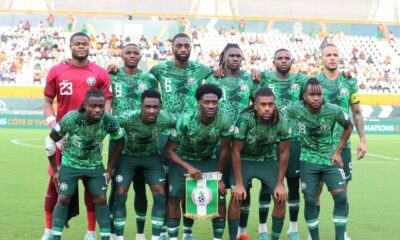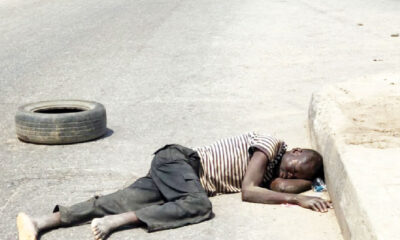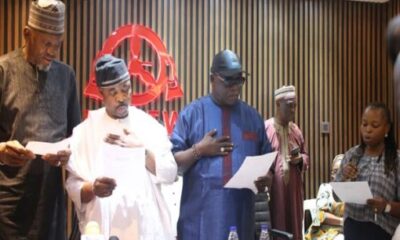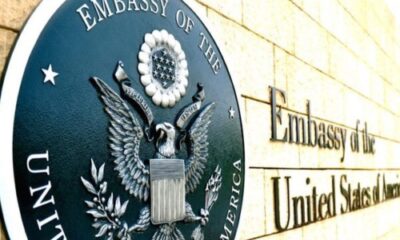A new enrollment period for the U.S. Diversity Immigrant Visa Program – also known as the Green Card Lottery – begins Wednesday. All applicants must apply between October 18 and November 22 to have their entries considered.
The original new registration period began October 3, but had to be scratched after all entries submitted between October 3rd and 10th were lost due to a technical glitch.
“Entries submitted during October 3-10 are not valid and have been excluded from the system; they will not count as a duplicate entry,” a message on the U.S. State Department’s website said.
Duplicate entries to the program disqualify aspiring immigrants.
“The technical issue has been resolved and a new full entry period will begin at noon, U.S. Eastern Daylight Time on Wednesday October 18, 2017 and will run until noon Eastern Standard Time on Wednesday November 22, 2017,” it added, telling applicants to “throw away” any confirmation number or documentation of applications submitted between the 3rd and 10th.
The State Department will be sending automated email notifications to each entrant who applied in early October, instructing them to check the website dvlottery.state.gov “for an important announcement”, spokesperson Pooja Jhunjhunwala told VOA via email.
“We will also work through our embassies and consulates to inform potential entrants of the situation and new registration period using social media and local media outlets,” she wrote.
The State Department is unable, however, to provide an estimate of how many people were affected and expected to reapply, Jhunjhunwala said.
A page on the US Embassy to Ecuador said that the technical issue failed “to properly account for country of eligibility if the entrant was selecting a country of eligibility other than his/her place of birth, which is permitted in certain limited circumstances,” stating that the issue was not the result of any hacking attempt.
Though the application period has been extended, experts fear that many entrants may not know to reapply.
“At least, they extended the entry period to make it a full month again. But I have doubt that thousands of applicants from the third world, who don’t check the internet every day, will know that their prior entry is no longer valid,” Kenneth Rinzler, a Washington, D.C.-based immigration attorney, tells VOA.
Technical issues
The Diversity Visa Lottery suffered technical problems in 2011, when the Bureau of Consular Affairs nullified all results upon realising that the selection was not random. The State Department said then that the failure was primarily due to a lack of adequate testing of the software before the lottery began.
For would-be Americans who don’t have family in the U.S., or an employer to sponsor them, or who aren’t refugees, the diversity visa is the only option. It requires a high school degree or a few years of work experience just to qualify.
If the application is valid, your number is chosen and you pass the other requirements for immigrants, you still need the money to get to the U.S. It’s a small portion of immigration to the U.S. every year, but larger than other cornerstones of the program, like employment-based immigrant visas.
In Fiscal Year 2015, the U.S. issued 48,097 diversity visas out of 531,463 total immigrant visas.
Winners of the current lottery would get their visas during the 2019 fiscal year that runs from Oct. 1, 2018 to Sept. 30, 2019.
Who is exempt?
Natives of all countries qualify except: Bangladesh, Brazil, Canada, China (mainland-born), Colombia, the Dominican Republic, El Salvador, Haiti, India, Jamaica, Mexico, Nigeria, Pakistan, Peru, the Philippines, South Korea, the United Kingdom (except Northern Ireland) and its dependent territories, and Vietnam. People born in Hong Kong, Macau, and Taiwan are eligible. (VOA)

 BIG STORY22 hours ago
BIG STORY22 hours ago
 BIG STORY1 day ago
BIG STORY1 day ago
 BIG STORY17 hours ago
BIG STORY17 hours ago
 BIG STORY1 day ago
BIG STORY1 day ago
 BIG STORY4 days ago
BIG STORY4 days ago
 BIG STORY3 days ago
BIG STORY3 days ago
 BIG STORY3 days ago
BIG STORY3 days ago
 BIG STORY4 days ago
BIG STORY4 days ago














Enkay
October 18, 2017 at 8:26 pm
Thanks for the information, please I need clarification, are you saying Nigerians can not apply for lottery? Please reply me thanks
Enkay
October 18, 2017 at 8:30 pm
Thanks for the information, please I need clarification, are you saying Nigerians can not apply for the lottery? Please reply me thanks